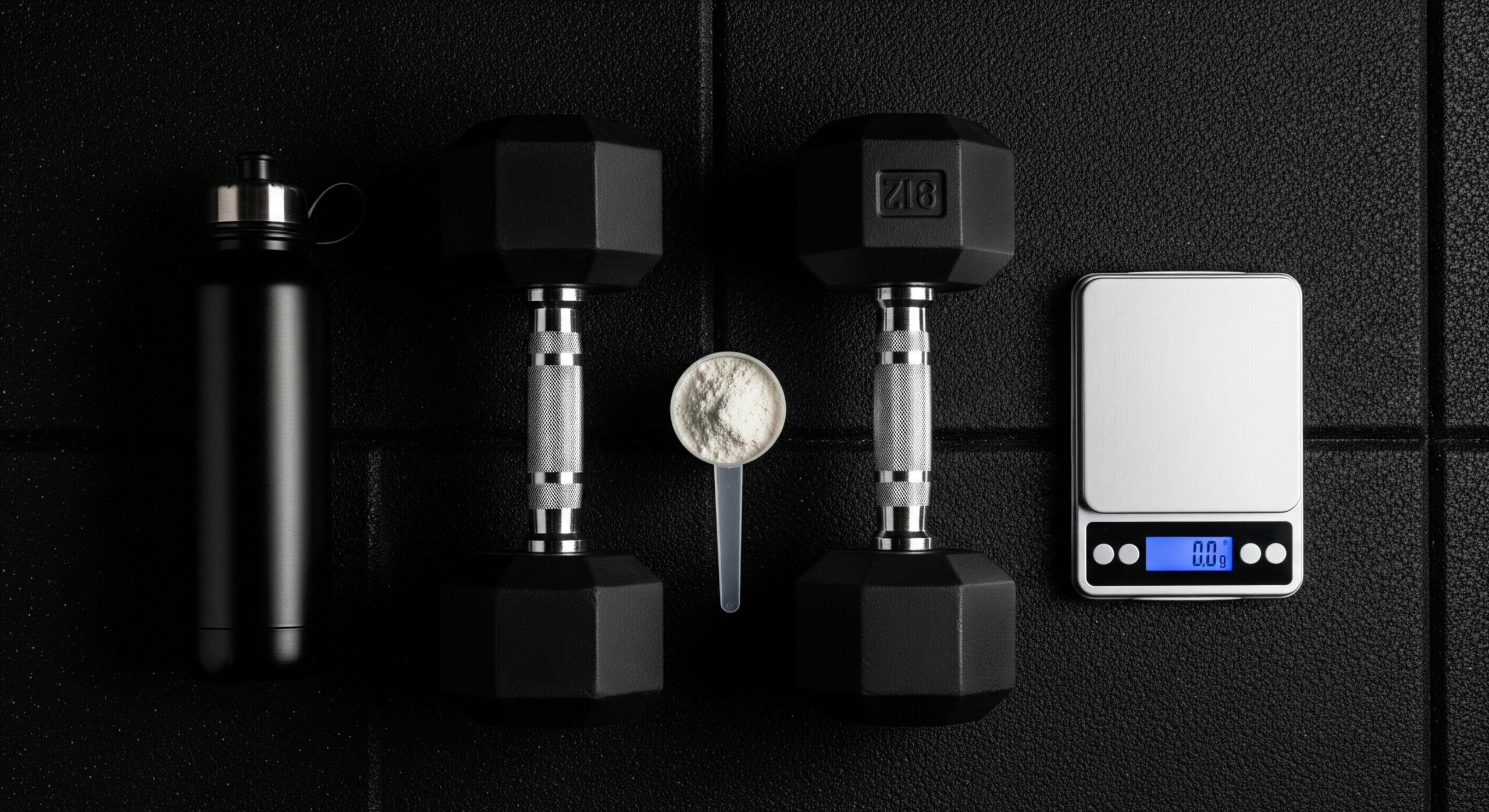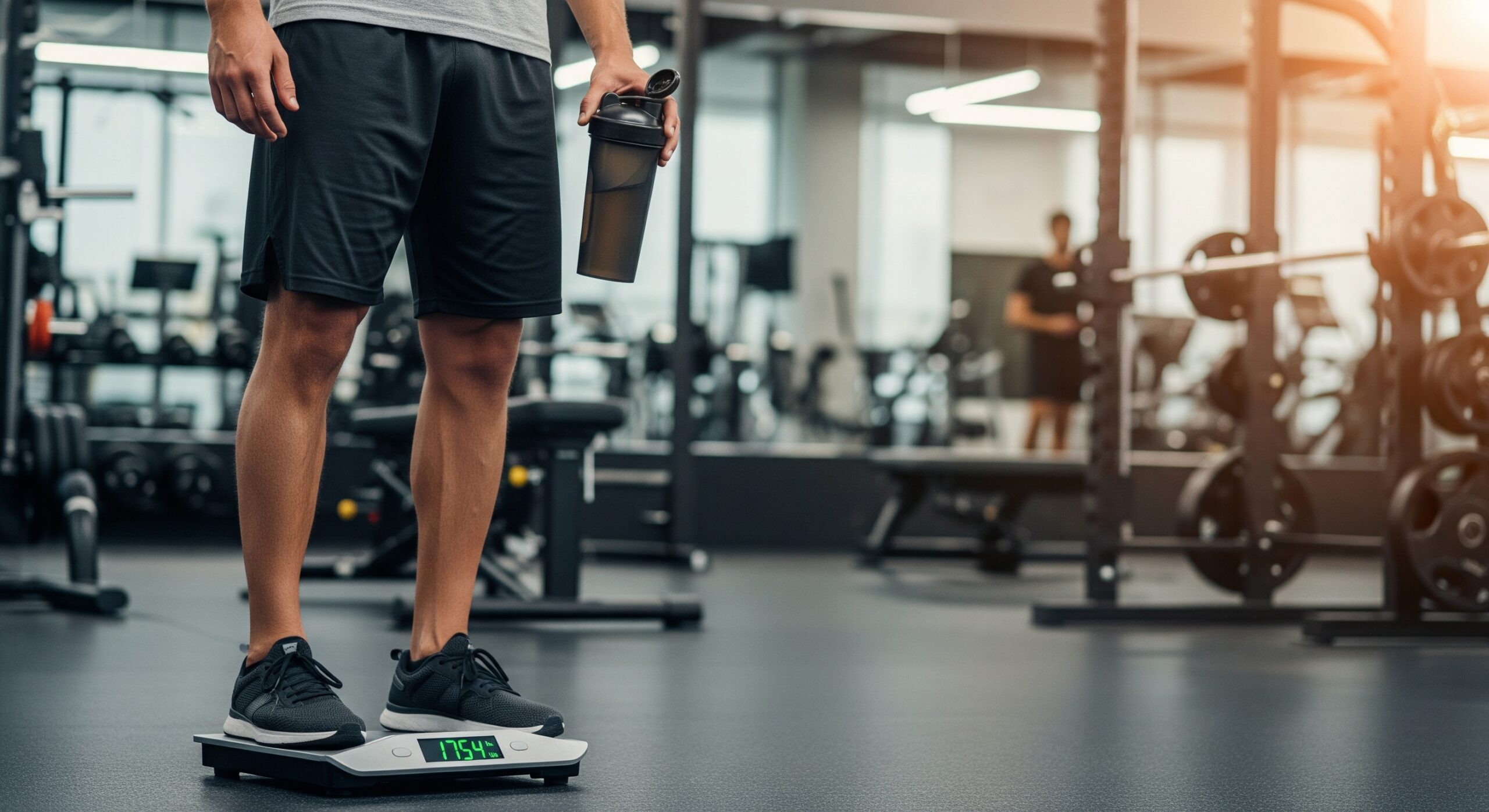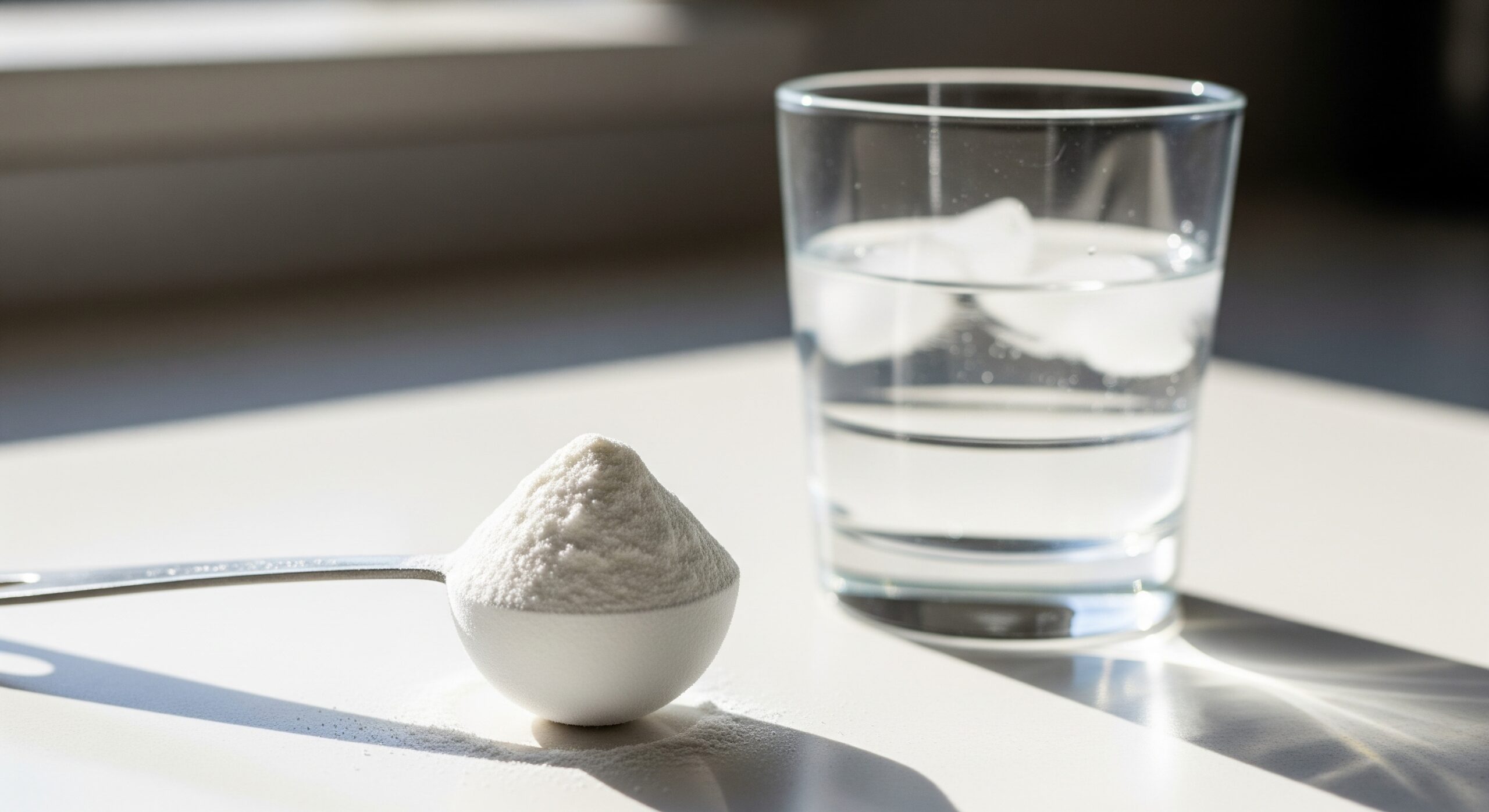
The first time I hopped on creatine, I was hyped about getting stronger at the gym. But after a week, I stepped on the scale and saw the number had jumped up.
My immediate thought was, “Wait—does creatine make you gain weight, and did I just sabotage my goals?” I even considered tossing the tub in the back of my pantry.
If you’ve had that moment of panic, you’re not alone. Creatine is one of the most researched supplements in fitness, but the conversation around weight gain can be confusing. Here’s the good news: it’s not as scary as you think.
Does Creatine Make You Gain Weight From Fat?
Here’s the short answer: no. Creatine doesn’t cause fat gain. It doesn’t sneak extra calories into your body or slow your metabolism. What it does is increase the amount of water stored in your muscles, making them look and feel fuller. That shift on the scale is water weight, not fat mass.
Think of it as your muscles getting better hydrated. Instead of being flat, they plump up with intracellular water, which actually makes them look tighter—not soft or bloated. So, while the number may creep up, it’s not fat gain sabotaging your progress.
Does Creatine Make You Gain Weight Quickly?
Yes, but the speed is what surprises most people. During the first week of supplementation, you might notice a 2–5 pound increase. That’s the famous “creatine water weight.” It happens because creatine helps your muscles store more energy in the form of phosphocreatine, and water tags along for the ride.
This early jump can feel discouraging if you’re focused on the scale. But instead of stressing, reframe it: this is your body priming itself for strength, recovery, and long-term muscle growth. That water is fuel storage, not unwanted bulk.
Does Creatine Make You Gain Weight in Muscle Over Time?

Absolutely—and this is where creatine shines. After the initial water retention phase, creatine supports improved performance. You’ll lift heavier, recover faster, and push through extra reps you couldn’t before. That translates into real muscle gains.
Over months, this new lean mass is what adds sustainable weight. It’s not “fake” weight, but the kind of progress you actually want to see. So while creatine may make you look bigger quickly, the long-term weight gain is muscle-driven, not water-driven.
How Do You Take Creatine Without Stressing About Weight Gain?
This is where consistency beats worry. Instead of obsessing over the scale, focus on performance markers—strength increases, endurance in your workouts, and how your muscles feel. These are better indicators than raw weight.
It also helps to understand dosing. A daily 3–5 grams is the sweet spot. Loading phases (20 grams per day for a week) can cause faster water retention, which may feel like dramatic weight gain. If that freaks you out, skip loading and just stick with the steady dose. You’ll still get the benefits—just at a smoother pace.
How to Use Creatine While Staying Confident in Your Progress

Here’s a smart way to frame it if the number on the scale stresses you:
Step 1: Track strength, not just weight. Celebrate the extra reps, heavier lifts, or quicker recovery.
Step 2: Monitor visuals. Take progress photos or notice how your muscles look fuller in the mirror.
Step 3: Stay hydrated. Since creatine pulls water into muscles, drinking enough helps keep your body balanced and reduces any uncomfortable bloating.
Step 4: Stay patient. The initial water weight is temporary. Over time, the weight you’re gaining is the lean muscle you’ve been working hard for.
By shifting the focus from numbers to performance and visuals, creatine becomes less intimidating and more empowering.
FAQs About Creatine and Weight Gain
Does creatine cause belly fat?
No. Creatine doesn’t contribute to fat gain. If you notice puffiness in your midsection, it’s likely water retention in the muscles—not fat storage. With proper hydration, this usually balances out.
Can I take creatine while cutting weight?
Yes. Creatine doesn’t interfere with fat loss. In fact, by helping you maintain strength while in a calorie deficit, it can preserve muscle mass during a cut.
Is creatine weight gain permanent?
The initial water weight isn’t permanent. If you stop taking creatine, your muscles will eventually return to their baseline water levels. The muscle you gain while using creatine, however, is yours to keep if you maintain your training.
Does everyone gain weight on creatine?
Most people do experience a slight weight increase, but the extent varies. Some may gain only a pound or two, while others see a bigger jump. Genetics, training style, and hydration all play a role.
Bigger, Stronger, and Not Just the Scale Talking
So, does creatine make you gain weight? Yes—but the kind of weight matters. The quick bump is simply water moving into your muscles, and the long-term gain is muscle that you’ve built through better training. Neither of these outcomes is negative.
Personally, I think of creatine as a mindset shift. The scale may go up, but what you’re really gaining is performance, confidence, and muscle fullness that reflects the hard work you’re putting in. The “weight gain” becomes a badge of progress, not a setback.
If you’re ready to see results in the gym, creatine is less of a question mark and more of a green light. Embrace the process, keep your water bottle close, and let the science work in your favor. The scale is just one story—your strength tells the real one.


